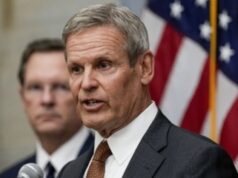Quad faces wide question on its effectiveness after Macron replaced Biden as Chief Guest in India

With US President Joe Biden being replaced by Macron of France, efficacy of Quad seems to be in doldrums. As Biden is not able to make it to India in late January, a visit that was tied to the proposed Quad Summit, the exclusive clique’s high-profile grouping of the US, Japan, Australia with India is facing renewed crisis.
This divergences between USA and India is coming more to the surface, while many observers question the real value of the Quad’s existence, although the elevation of the mechanism had been a central feature of Washington’s push to contain China.
Last month, Japanese media outlet Nikkei Asia, citing a senior US official, revealed that Biden would not travel to India this January due to the “tight political calendar.”
Next the Indian media outlet ANI published an interview with the country’s External Affairs Minister Subrahmanyam Jaishankar, who said that Biden’s visit was tied to the proposed Quad Summit and indicated that the dates did not work with all partners.
Titled “Stars not aligning: Quad summit in doubt for second year running,” a news report by Australian media outlet the Sydney Morning Herald on Tuesday said that preparations were under way for Indian Prime Minister Narendra Modi to host Australian Prime Minister Anthony Albanese and the other Quad leaders on January 27. However those plans were ditched after Biden declined an invitation to travel to India.
New Delhi then unceremoniously replaced Biden and invited Macron as the Chief Guest for India’s Republic Day Parade. The Quad meeting was flushed down the drain.
Many news report questioned Quad’s ability to serve as a democratic bulwark against China.
This is not the first time the Biden missed the Quad group. The previous Quad summit, scheduled to be held in Sydney in May 2023, was cancelled at the last minute when Biden withdrew because of the US debt ceiling crisis, leading to a makeshift leaders’ meeting being organized on the sidelines of the G7 Summit in Hiroshima, according to the Australian media outlet.
As the US has stepped into its election year, the only matter of importance for Biden now is the election “Now that it is an election year, I tend to believe that Biden does not pin his hope of leveraging diplomatic measures to improve his chances of winning the race,” said Lü Xiang, a research fellow at the Chinese Academy of Social Sciences.
Before Biden was elected, he was considered a senior politician with a lot of experience in diplomacy and was expected to achieve great things in this area. However, since taking office, he has faced one diplomatic failure after another.
“During a term in office, a president always wants to make some new stunts. In normal operations, initiatives like Quad summits can work, but now that Biden is facing the life-or-death situation of his political career, these initiatives are nothing to him,” the expert said. He pointed out neither the Quad nor the Indo-Pacific framework can increase Biden’s chances of an election victory, so Biden will abandon it at least for now.
That Quad summit has to be cancelled for the second time because of Biden is a huge blow to the exclusive clique which has a central feature of Washington’s push to suppress China in the Indo-Pacific, observers remarked.
US diplomacy will be in a relatively frozen state during this election year, and it will be difficult for the US to maintain its original status in foreign affairs.
If Biden is absent from the Quad summit, the momentum will dissipate and it will lose its meaning. The Quad, as a US sponsored mechanism, is greatly influenced by domestic political fluctuations in the US, which requires the other three state members to remain vigilant in their commitment to the mechanism, he said.
Observers stated that Washington’s aim of the elevation of the Quad was to unite the four countries to achieve a comprehensive plan of containment and suppression against both Russia and China, which is in line with US hegemonic aspirations. However, the strategic interests of the US are at odds with the other three allies and partners, especially India’s.
“This reflects the fragile strategic foundation of the Quad itself,” Li said.
One reason why he did not attend is obvious – going to India would indulge India’s divergent actions from the US in a series of major international affairs. Especially during the Ukraine crisis, the US aimed to build a large network to contain Russia, while India’s clear choice was to strengthen its ties with Russia based on its own national needs, the expert said.
India’s choices during the Ukraine crisis have embarrassed Biden, and its actions in the BRICS mechanism and non-cooperation with the US on climate change issues have also been evident.
Australia also wants to enhance its reputation and international status through this China-targeting alliance, but at the same time, Australia’s economic interests are closely tied to China clearly. The US hopes that Australia will sacrifice its economic interests, but Australian voters would not agree, especially since Australia will have a federal election in 2025, the expert remarked.
Japan may be more enthusiastic about the mechanism, as it wants to maintain its illusion of being the “second-largest democratic economy” through this grouping.
But although it is a vassal of the US in terms of security and diplomacy, Japan also has its own national interests. The binding of Japanese politicians to Washington actually makes the Japanese people feel uneasy and unhappy, says a Chinese analyst.
Therefore, it is difficult for the US to obtain the benefits it desires from the Quad, according to the observers.
They pointed out that the Quad now appears more loosely connected than when it was first established, with internal contradictions and divergences at the strategic level becoming more prominent.
“This also reflects the weakening of the US’ ability to control international affairs and its allies and partners, highlighting the decline of US international influence. Even if US political elites do not admit it, this is the objective reality,” said an expert.



